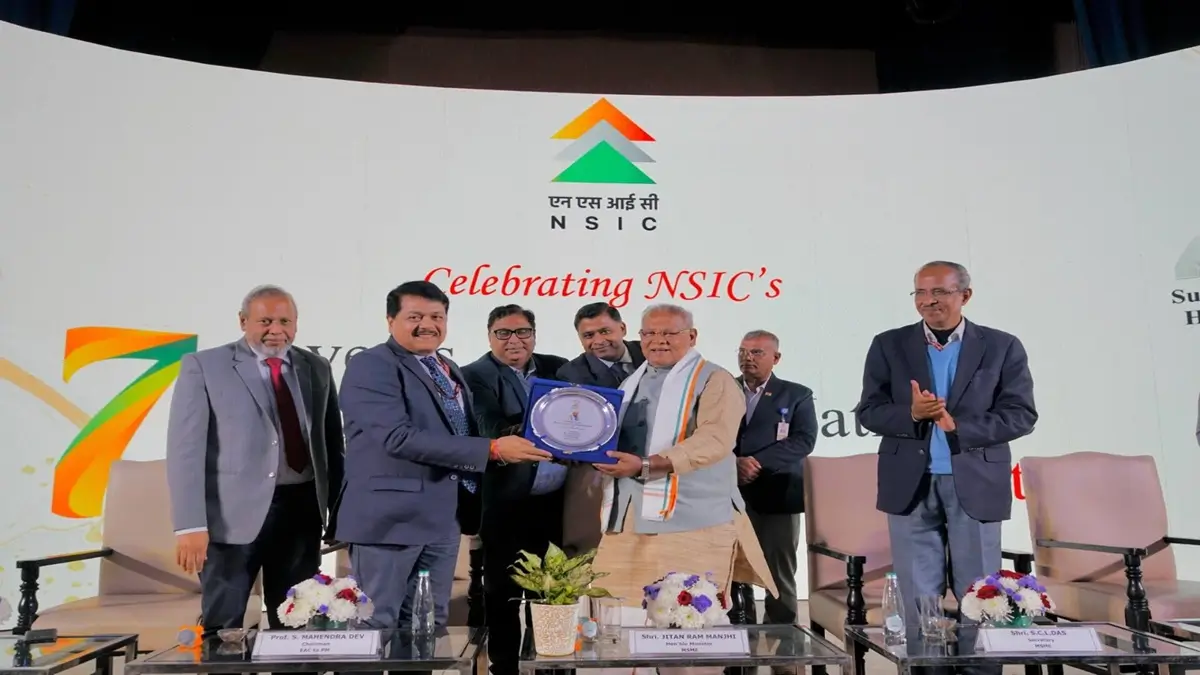India Hosts First Global Cooperative Conference in 130 Years
India recently hosted the first-ever Global Cooperative Conference in 130 years, marking a historic moment in the global cooperative movement. This conference, held in New Delhi, brought together global leaders, policymakers, and stakeholders to discuss the future of cooperatives and their role in sustainable development. It was organized by the Ministry of Cooperation and attended by representatives from more than 100 countries.
The conference was a part of India’s efforts to promote the cooperative sector globally, emphasizing the importance of cooperative societies in driving economic development and social welfare. The event was held in the backdrop of India’s strong cooperative movement, which has been an integral part of its economy, especially in rural areas. The conference aims to strengthen the cooperative framework, explore innovative solutions, and boost global cooperation in achieving the United Nations’ Sustainable Development Goals (SDGs).
India’s Role in the Cooperative Movement
India has been a leader in the cooperative movement, with its cooperative sector covering agriculture, banking, housing, and dairy industries. The country has a strong base of cooperatives, especially in rural areas, where they play a crucial role in providing credit, enhancing agricultural productivity, and improving living standards. The cooperative model is seen as a tool for poverty alleviation, ensuring inclusive economic growth, and reducing income inequality.
The conference highlighted India’s unique position to lead the global cooperative agenda, as the nation has one of the largest networks of cooperatives in the world. The government’s efforts to promote cooperatives have helped in transforming the economic landscape, providing a platform for small and medium-sized enterprises (SMEs) to thrive.

Why This News is Important
Global Cooperation for Sustainable Development
The Global Cooperative Conference signifies India’s growing influence on the world stage and its commitment to sustainable development through cooperative models. The discussions and outcomes of this conference will likely influence policies worldwide, particularly in developing countries, as they aim to leverage cooperative principles for inclusive economic growth.
India’s Leadership in the Cooperative Sector
India’s leadership in hosting such a significant event emphasizes the country’s ongoing efforts to modernize its cooperative sector. The cooperative model has proven effective in addressing various socio-economic challenges, such as poverty, unemployment, and inequality. By hosting this conference, India has showcased its ability to lead international dialogues on such critical topics.
Economic and Social Impact
The cooperative movement is closely linked with India’s economic and social progress. The success of cooperatives in agriculture, banking, and rural development has been instrumental in lifting millions out of poverty. This conference reiterates the importance of the cooperative model in empowering communities and contributing to the nation’s overall development.
Historical Context
India’s cooperative movement dates back to the early 20th century, but it gained significant momentum after India’s independence in 1947. The government, under the leadership of Sardar Vallabhbhai Patel, focused on promoting the cooperative model as a means to support rural development and address issues related to agriculture and rural credit.
In 1904, the Cooperative Societies Act was introduced, marking the beginning of the formal cooperative movement in India. Post-independence, the establishment of the National Cooperative Development Corporation (NCDC) in 1962 further boosted the sector, enabling the formation of cooperatives in various sectors.
The dairy sector, through the establishment of the National Dairy Development Board (NDDB), saw a revolutionary change with the launch of Operation Flood in 1970, which made India the largest producer of milk in the world. Over time, the cooperative movement has expanded to cover banking, housing, and other sectors, ensuring that millions of people benefit from its services.
Key Takeaways from “India Hosts First Global Cooperative Conference in 130 Years”
| Serial No. | Key Takeaway |
|---|---|
| 1 | India hosted the first Global Cooperative Conference in 130 years, attended by global leaders and policymakers. |
| 2 | The event emphasized the role of cooperatives in sustainable development and achieving the United Nations’ SDGs. |
| 3 | India is a global leader in the cooperative movement, with a strong network of cooperatives in agriculture, banking, and rural development. |
| 4 | The cooperative model in India has proven effective in poverty alleviation, economic inclusion, and rural development. |
| 5 | The conference highlighted the need for increased global cooperation to address economic and social challenges through cooperatives. |
Important FAQs for Students from this News
What is the Global Cooperative Conference hosted by India?
The Global Cooperative Conference held in India is the first international gathering in 130 years focusing on the role of cooperatives in global development. It was organized by the Ministry of Cooperation, bringing together policymakers, global leaders, and experts to discuss sustainable development through cooperative models.
Why was India chosen to host the first Global Cooperative Conference?
India was chosen because of its strong cooperative sector, which has been a vital part of its economic development, particularly in rural areas. India has one of the largest networks of cooperatives in the world, covering various sectors like agriculture, banking, and dairy.
How do cooperatives contribute to sustainable development?
Cooperatives play a crucial role in sustainable development by promoting inclusive economic growth, reducing poverty, and ensuring social welfare. They are an effective model for addressing challenges such as unemployment, inequality, and community development.
What is the significance of cooperatives in India?
Cooperatives have been instrumental in India’s rural development, providing access to credit, enhancing agricultural productivity, and supporting various socio-economic initiatives. They contribute to poverty alleviation and empower communities, particularly in underserved areas.
How does the cooperative model help in achieving the UN Sustainable Development Goals (SDGs)?
Cooperatives are aligned with the SDGs by fostering inclusive economic growth, gender equality, and poverty reduction. They contribute to social cohesion, sustainable agriculture, and equitable access to resources, all of which are vital in achieving the SDGs.
Some Important Current Affairs Links

















